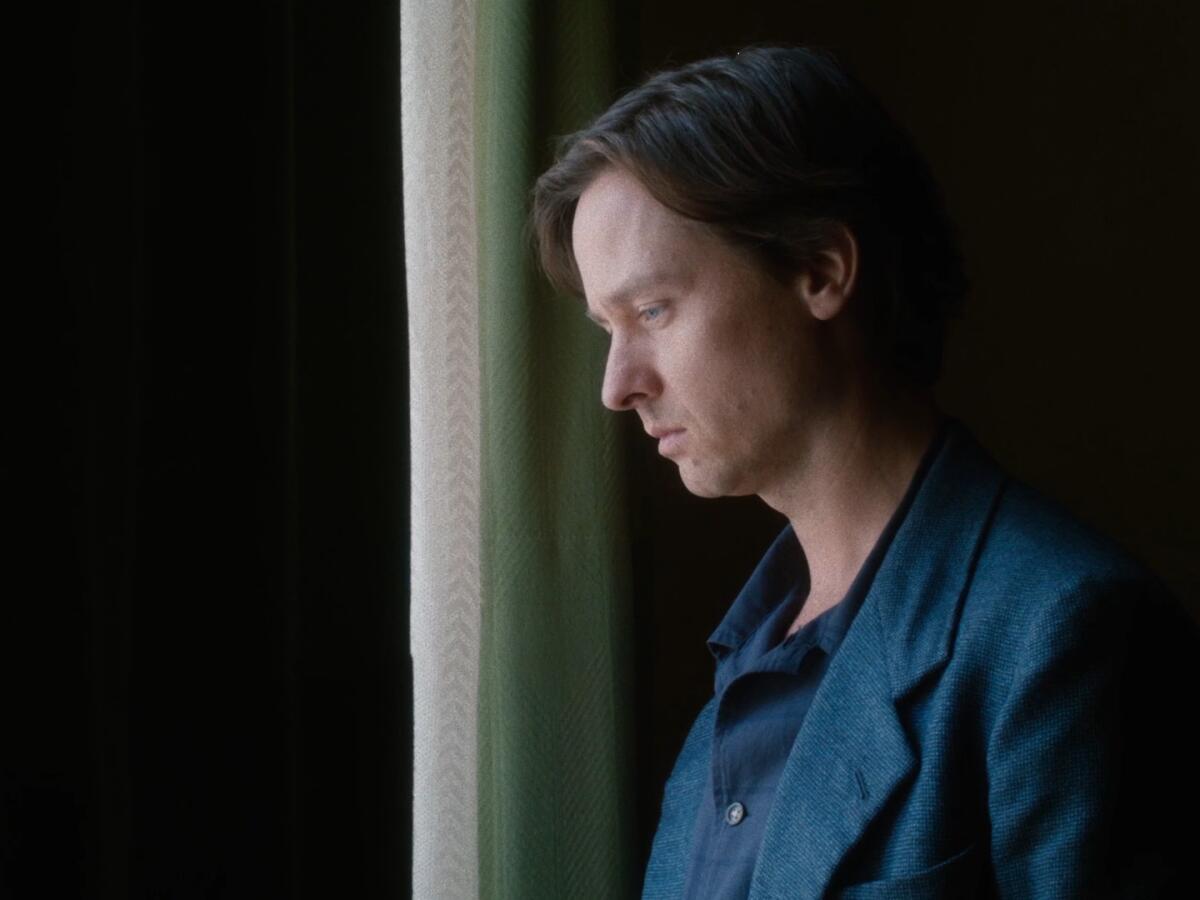‘Fabian: Going to the Dogs’ a romance in the shadow of authoritarianism

- Share via
Setting aside anticipation for the reboot of a certain caped crusader, there’s another three-hour film releasing this week based on ‘30s source material and set in a crumbling metropolis on the cusp of succumbing to a criminal element. It may not have any vanquishing heroes, but it does center on a struggling moralist: German filmmaker Dominik Graf’s “Fabian: Going to the Dogs,” a fleet, gritty and unruly adaptation of Erich Kästner’s autobiographical Weimar-era novel, set in a Berlin marked by an ever-widening chasm between societal hopes and daily realities.
Like a sympathetic nod from a European neighbor to the rich dramatic sweep of the Italian epic “Martin Eden” from a few years ago, “Fabian” puts realism and idealism in stark contrast by way of an observant but complicated young man condemned to live in interesting times. In a casually virtuosic opening shot, Graf wants us to realize how not that far back those times were, starting in the now at one end of a Berlin subway station, traveling the length of the platform amid present day commuters, before emerging aboveground to 1931 clothing, Nazi posters and our protagonist.
For your safety
The Times is committed to reviewing theatrical film releases during the COVID-19 pandemic. Because moviegoing carries risks during this time, we remind readers to follow health and safety guidelines as outlined by the CDC and local health officials.
A cigarette ad-copy writer with suppressed literary talent, Jakob Fabian (Tom Schilling) isn’t blind to the turbulence curdling the air — he can bemoan the lack of altruism in the world with the best of them, even if the occasional lip he gives the snobby waiters at his favorite café feels more self-gratifying than meaningful. He’s more content playing the aloof hedonist, frequenting Berlin’s seedier clubs and navigating their temptations alongside his more politically conscious but emotionally troubled friend Stephan Labude (Albrecht Schuch), who comes from wealth yet talks like a sentimental socialist.
One night, Fabian’s night-crawling crosses paths with smart, beautiful legal trainee and aspiring actress Cornelia (Saskia Rosendahl). When they fall in love, he’s spurred to put the various elements of his unexamined life — money, desire, family and the future — in sharper focus, allowing him the chance to hope. But is there a place in an increasingly dire, desperate and cruel society for someone whose inherent kindness and social intelligence are only now being put to the test?
Graf, whose long career in Germany includes a lot of television, has a serialist’s energy when it comes to Kästner’s winding narrative (which Graf co-adapted with Constantin Lieb). Following “Fabian” is like keeping up with someone on a jazzy, heady bender. Stylistically, it’s rough too and willfully chaotic in the early going, marked by jarring music cues, snatches of Super 8mm, blips of archival footage, omniscient voice-over (male and female) and even split screen, as if Graf were out to cinematically evoke the intoxicating bluntness of the merciless Weimar painters like George Grosz and Otto Dix.
It takes some getting used to, and there are sequences more awkward in their motley-ness than pointed. But overall, it’s an effectively crashing intimacy created by the performances (especially the fizz and warmth Schilling and Rosendahl have together), Claudia Wolscht’s restless editing and Hanno Lentz’s camerawork. Graf’s approach is admirably less enamored with the prettifying impulses so many filmmakers rely on to capture the past, and instead centered on putting us inside it. It reaps dividends too when the story hits its more melodramatic spots, and the hangover of cynicism and optimism reveals the tragedy of where this trio of lives is headed.
There couldn’t be a more auspicious time for a movie about well-intentioned, troubled souls on the precipice of authoritarianism. You might be inclined to get your Gotham fix in first if brooding escapism is what calls you at this tipping point for a world waiting to see how good confronts bad. But cinema also needs dynamic, expansive, almost hand-cranked works like “Fabian: Going to the Dogs,” about people in times that existed, meeting challenges — or not — in ways that echo through history. Fabian tells his friend Labude, “I observe. Isn’t that enough?” Labude answers, “Whom does it help?”
‘Fabian: Going to the Dogs’
In German with English subtitles
Not rated
Running time: 2 hours, 56 minutes
Playing: Starts March 4, Laemmle Playhouse 7, Pasadena; Laemmle Royal, West Los Angeles; Laemmle Town Center 5, Encino
More to Read
Only good movies
Get the Indie Focus newsletter, Mark Olsen's weekly guide to the world of cinema.
You may occasionally receive promotional content from the Los Angeles Times.










